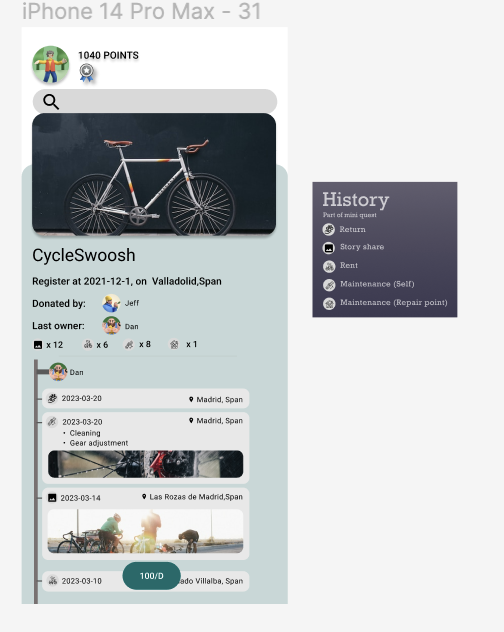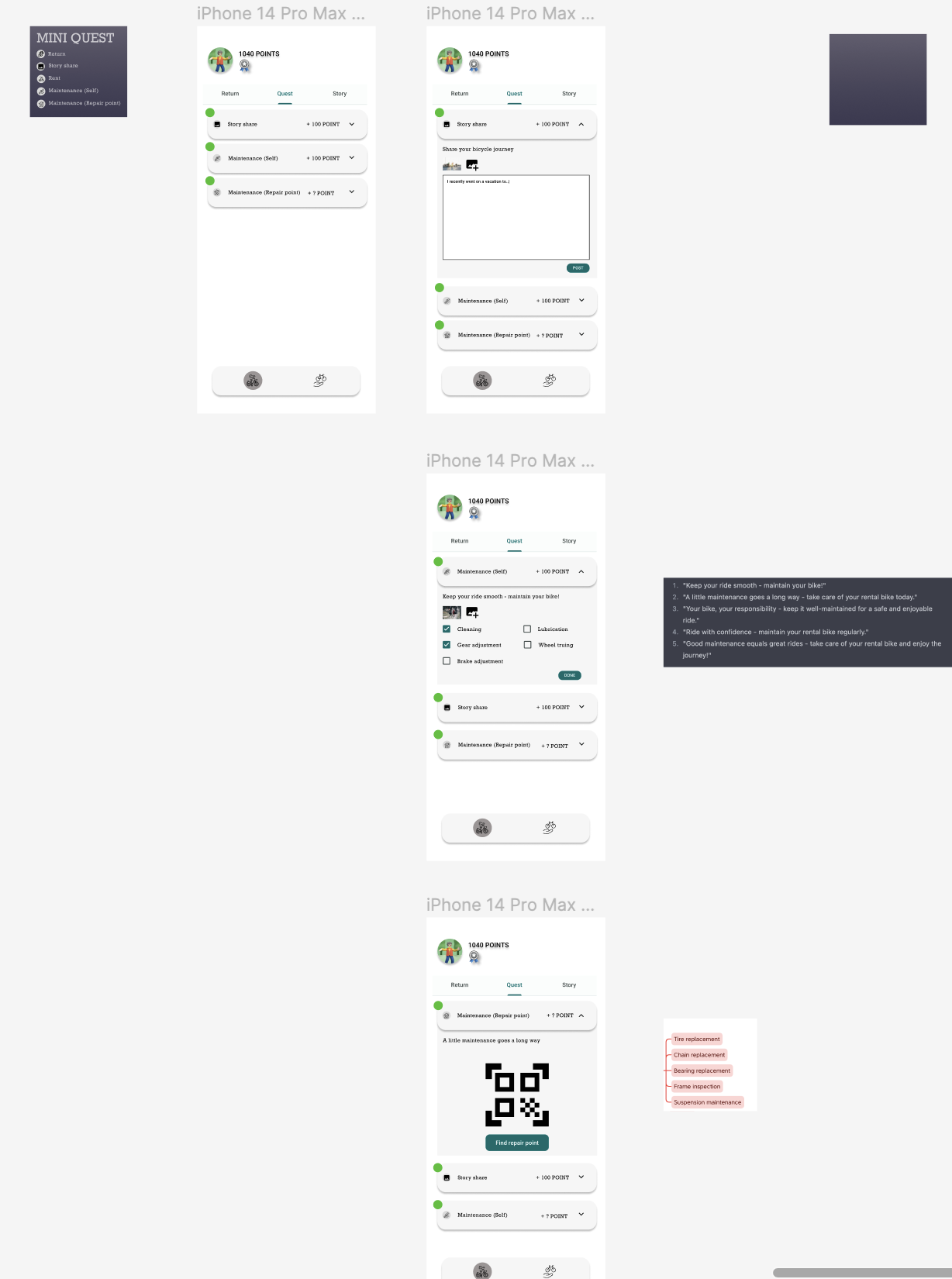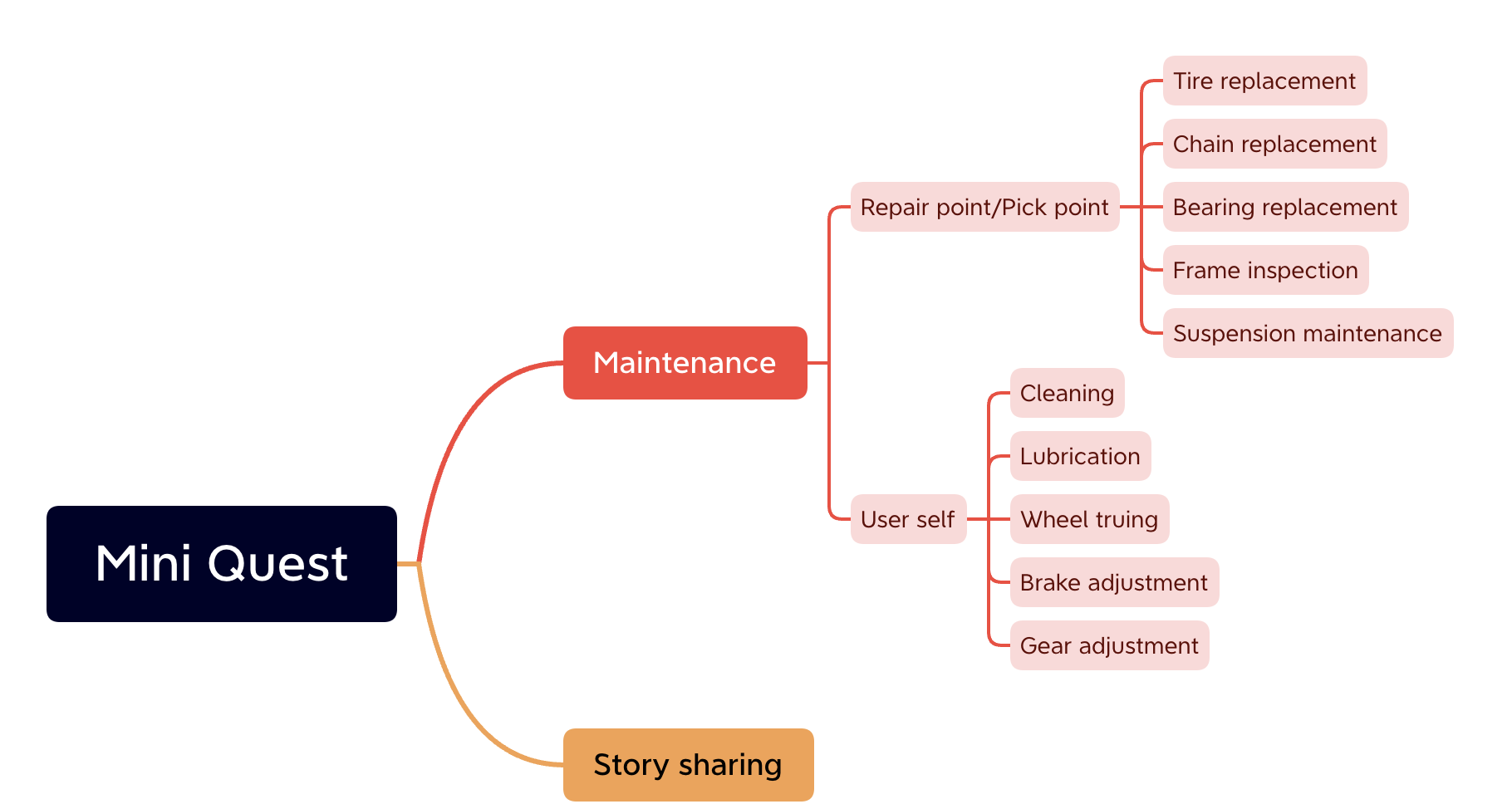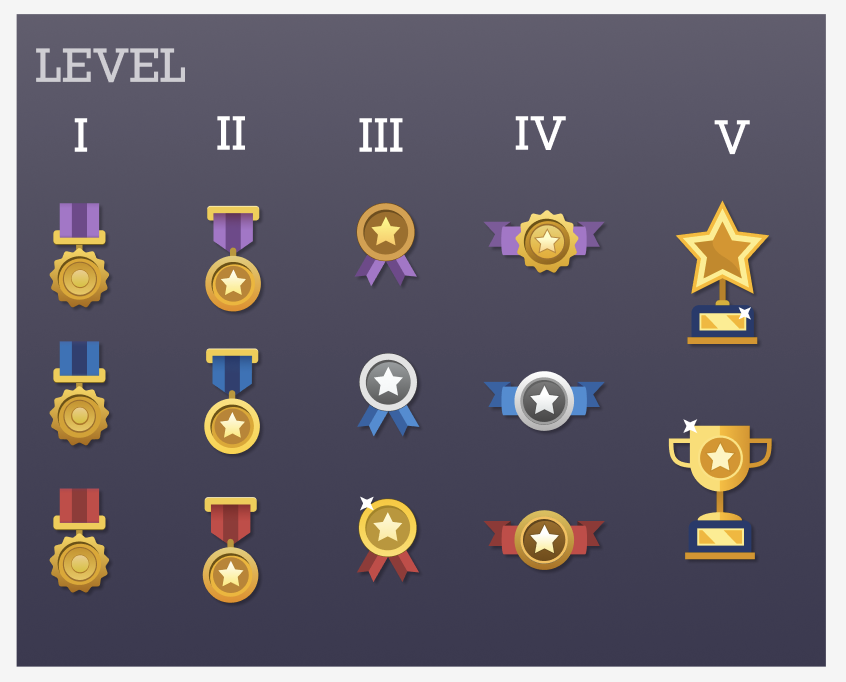Figma prototype design - v0.2
Context
As time has progressed, my personal project concept has evolved and become more defined. The present design challenge is to adopt previous concepts, and visually conveying the overarching idea and fundamental elements of my personal project using the Figma design tool.
The primary focus of my concept is centered around the idea of "bike crossing" and the concept of "ownership." To emphasize this theme, I have introduced the "bike profile" concept, which allows users to access the bike's "life trajectory" after donating or borrowing it.
The supporting elements of this concept include:
- Point system
- Donation/rent/return process
- Bike profile
- Mini quest system (reword point)
- Badget system (less important at the moment)
Concept - 1 Type of bike
As bicycle renters, users may have diverse needs and purposes. Some of these include:
- Individuals on a trip who want to explore the surrounding area on a bike.
- Families on vacation who wish to explore the local area.
- Individuals planning a long-distance bike trip who do not own road bikes.
- College students who require a temporary bike for grocery shopping and commuting.
- Business travelers staying in hotels who wish to tour the surrounding environment.
- Individuals who enjoy trying out various types of bikes but do not wish to purchase one.
- Etc.

Concept - 2 Bike profile
Introducing the "bike profile" concept has the potential to trigger the Alfred Effect and co-creation principles within the Octalysis framework. As bicycle renters engage in mini-quests and actively participate in constructing the bike's story, they will develop a deeper emotional connection with the bike and appreciate it more unconsciously.

Concept - 3 Rent/Return Process
Our platform's services differ from those of other platforms that offer one-time bicycle rentals.
Our target users typically plan their rentals in advance, renting for a day, two days, or a week, rather than renting on an hourly or minute basis. As a result, the demand for bicycle storage distribution points is reduced, creating a new business cooperation model with bicycle retailers and repair shops located throughout the city.
Users have the opportunity to earn points by completing maintenance activities, such as tire replacements, which can be used to rent bicycles in the future. Repair shops provide drop-off locations for the platform, while also generating additional revenue by selling accessories and repair services.

Concept - 4 Mini quest
The introduction of mini quests can offer several benefits:
By completing simple maintenance tasks such as cleaning and lubricating, users can effectively extend the lifespan of the rented bike.
Users can earn rewards or credits by completing mini tasks, which can be used for future bike rentals. As users complete these tasks, they will develop a stronger attachment to the bike they have rented.
These mini tasks can enrich the bike's profile, allowing past bike renters to feel that they have participated in a meaningful activity.

Based on current design, the mini quests can be categorized into several groups, which may be subject to modification in the future according to user needs:

Concept - 5 Badget/Achievements system
The badge system can also serve as a visual representation of a user's accomplishments and history within the platform. It can enhance the feeling of ownership and pride in the bikes they have rented and maintained, further increasing their attachment to the platform.
Additionally, the badge system can be integrated with social media platforms, allowing users to showcase their achievements and share their experiences with friends and family. This can potentially attract new users to the platform and expand its reach.

Concept - 6 Future and imagination
These are some interesting scenarios to imagine:
Imagine a userA, who donated his bike in country C. Several years later, his son travels to country D and happens to rent the same bike that A had donated on the platform. What a fascinating coincidence that would be!
Fast forward several years into the future, due to the revolution in battery technology, human-powered bicycles have become outdated and are no longer popular or widely used. However, the bike that was released into the "drift" years ago is still out there, surviving through time.
Imagine a user who donates their old bike to the platform, but it is in poor condition and needs extensive repairs. A local repair shop partnered with the platform picks up the bike, repairs it, and updates its "bike profile" with the repair history. Several months later, another user rents the bike and sees the improvements made to it, encouraging them to take good care of it and return it in good condition.